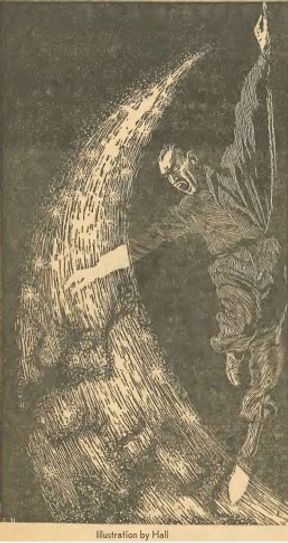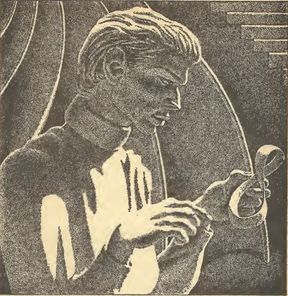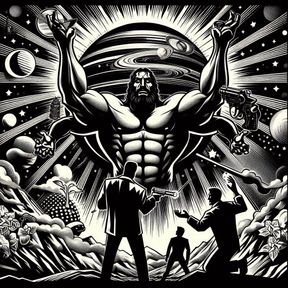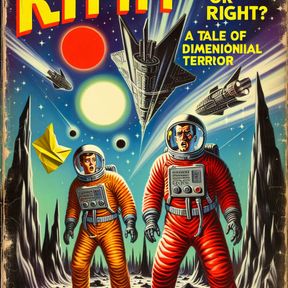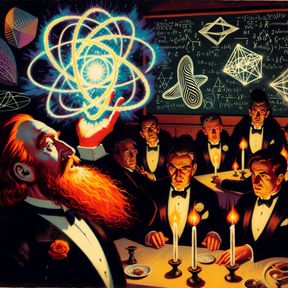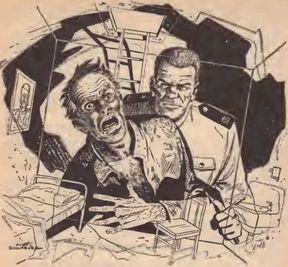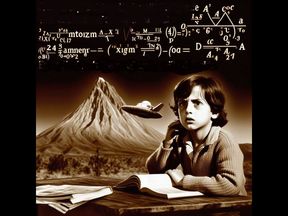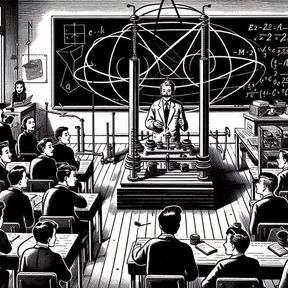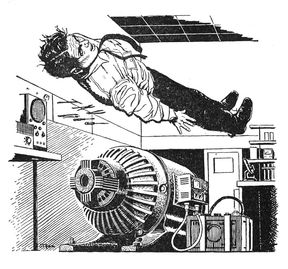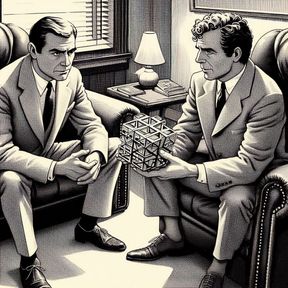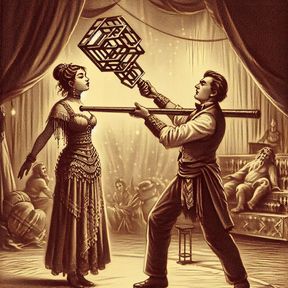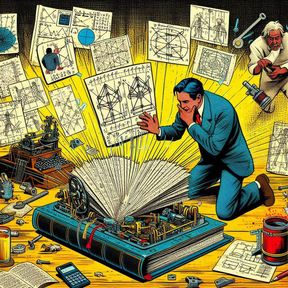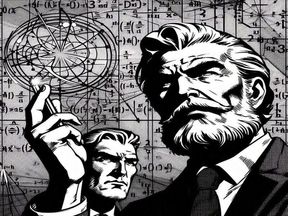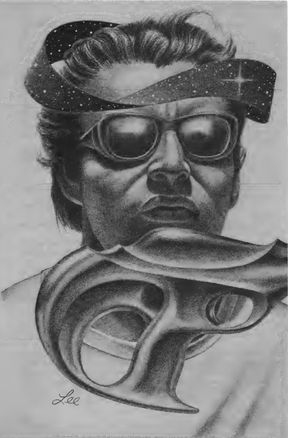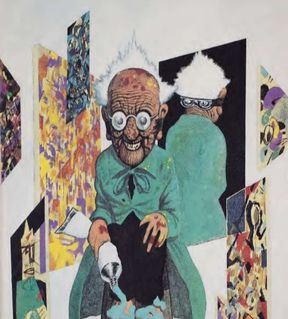A strange border wall in Maine which appears to wrap around itself in an inexplicable manner…
Stories for 'Topology'
Sorted by date of original publication
-
-
A mysterious wall surrounds an entire planet in a strange universe. Two inhabitants decide to undertake a journey along the wall and see where it leads, trying to find what lies on the other side of it, all set for a remarkable, mind-twisting denouement.
-
The text mentions that Ganymedeus exists in multiple dimensions. Mathematics, particularly geometry and topology, could be essential in understanding and visualizing these higher-dimensional spaces. The expressiveness of skiagrams might be analyzed mathematically to understand how different traits correlate with one another, potentially revealing underlying patterns in Ganymedean life.
-
After a freak accident flips their spaceship through the fourth dimension, two astronauts must determine whether their entire reality has been mirrored—before delivering a critical cargo that could either save or doom Earth. With no physical test to distinguish left from right in a reversed universe, their only hope lies in a crumpled scrap of paper floating in space.
-
When a renowned topologist claims to have discovered a surface with no sides, his demonstration at a mathematicians’ banquet spirals into chaos—ending with a man vanishing into another dimension. As reality twists like a Moebius strip, only topology can explain the impossible transformations unfolding in a Chicago nightclub.
-
A novel about an expedition undertaken by a group of mountaineers to Mount Analogue, a mountain invisible to the outside world, but whose existence can be deduced using science.
-
A prisoner without his memory rediscovers his equations of higher dimensions while locked inside a strange room in space…
-
This story revolves around a young boy Bobby whose intellectual pursuits and understanding of more complex ideas, including the themes of alien intelligence and the supernatural is because of his mastery in advanced mathematical concepts such as differential calculus, integral calculus, topology, and even Maddows Theory of Transfinite Domains.
-
A comedic class-demonstration of an experiment going awry, causing the entire classroom disappearing into a cosmic hole, lock, stock and barrel…
-
This narrative explores themes of altered perception, the nature of reality, and the interplay between technology and human experience. Through the characters of Jack and Paul, it delves into the complexities of scientific experimentation and the potential consequences of manipulating physical laws, such as gravity. The vivid descriptions of the characters' experiences, particularly Jack's disorientation and the surreal atmosphere, highlight the tension between their expectations and the bizarre realities they encounter. Overall, the text invites readers to reflect on the boundaries of human understanding and the unpredictable outcomes of scientific inquiry, suggesting that the pursuit of knowledge can lead to both enlightenment and confusion.
-
A funny short story about a higher-dimensional object accidentally opening up in our 3D world.
-
A topologist shows how to trap living things, including unwanted lovers, inside a tessaract. -
A short story about a man discovering mathematical diagrams in his grandfather's diary from the 1800s, which helps him fold sheets of paper in a manner which make them disappear, and also discover that people can be folded in a similar manner and can be made to disappear...
-
The narrative recounts the life and tragic death of mathematician Martin Gardner, touching on his groundbreaking work in topology and the implications of a proof by Professor Paul David that challenges the foundations of Euclidean geometry. David’s proof introduces a philosophical crisis in mathematics, challenging long-held beliefs and inviting skepticism about foundational truths. As Dr. Donald Lucus grapples with the fallout of this revelation, he faces the tension between scientific truth and the societal consequences of such knowledge, ultimately leading to a complex interplay between mathematics, philosophy, and morality.
-
A short novel that discusses how a blind geometer might visualize abstract spaces, and touches upon some results from projective geometry as well.
-
Dr. Lyle Thaddius has been a practicing psychiatrist for 30 years, dedicated to resolving the inner conflicts and demons of all who need help. He takes on a new patient, Juan Gris, who insists on the doctor visiting his house for the counseling sessions, at 3 times the normal fees. Gris, it turns out, is an extremely old man, past 100 likely, who lives in what is described as a “madman’s house”.
